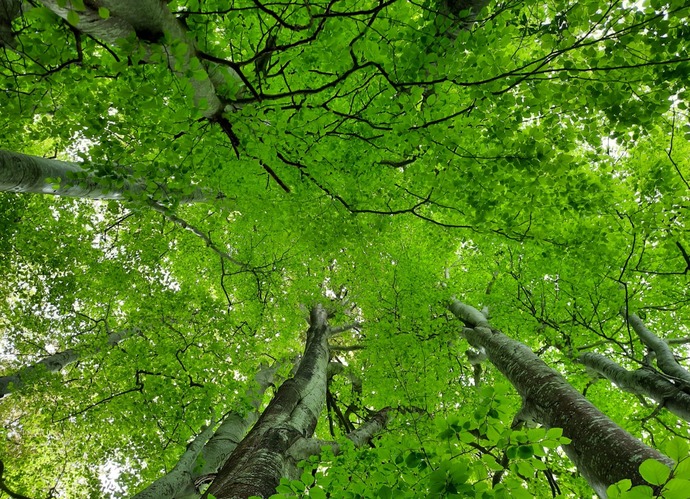
Research projects
The UCD Earth Institute supports new interdisciplinary projects and initiatives through its Strategic Priority funding scheme. Led by multidisciplinary teams of researchers working with relevant partners and stakeholders, the projects aim to address topical environmental, climate and sustainability challenges.
On This Page
- Marine and seabed environments
- Trees
- Energy Narratives
- Soil
- Transport
- Data farms to urban farms
- Just Transition
- Cultural Landscapes and Social Spaces
- Mountains
- Sustainable wellbeing
- Biostimulants and biopesticides
- Community SDG Dashboard
- Ecological networks
- Crop diversification
- Irish Towns
- Hemp
- Ecobroker
- Climate resilience

Marine and seabed environments
The seabed and marine environment are central to key challenges around climate change and the energy transition. The UCD Marine and Seabed Research Group (UCD MarSea), is working to establish a welcoming forum that will explore the complex interaction between geological, oceanographic, environmental and biological factors that control the evolution of the seafloor. It will examine the implications these interactions can have on the sustainable use of the seafloor in terms of infrastructure development and marine spatial planning, including marine protected areas.
Academic leads
- (opens in a new window)Mark Coughlan, UCD School of Earth Sciences
- (opens in a new window)Jennifer Keenahan, UCD School of Civil Engineering
- (opens in a new window)Shauna Creane, UCD School of Civil Engineering
- (opens in a new window)James Herterich, UCD School of Mathematics and Statistics
Supported by the Earth Institute Strategic Priority Support Mechanism, 2024/2025.

Trees
Trees are the largest-growing longest-living things on our planet. They make us happy. They’re beautiful. They’re essential to our quality of life. They’re multi-tasking climate champions. They cool and clean the air, store carbon, create healthy habitats and host wildlife. They’re social and sensate, they communicate with each other. And there’s much that isn't known about them.
The Trees Outside the Forest project hopes to bring together a transdisciplinary community in debate and thinking about the tree resource, roles, values and futures of Ireland’s trees and questions of how we steward them. The project team seeks to identify gaps in knowledge, and in policy, to support development of an emerging area of research, and to raise awareness of the need for better planning of trees, policy for trees and research into trees in urban situations (the urban forest) and rural ones (trees, hedgerows and informal woodlands).
Leads
- (opens in a new window)Sophia Meeres, UCD School of Architecture, Planning and Environmental Policy
- (opens in a new window)Brian Tobin, UCD School of Agriculture and Food Science
- (opens in a new window)Gerald Mills, UCD School of Geography
- (opens in a new window)Tine Ningal, UCD School of Geography
- Ciaran Bennett, UCD Estates
Supported by the UCD Earth Institute Strategic Priority Support Mechanism 2024/2025.
Energy Narratives
Narratives provide invaluable ways of expressing the grassroots experiences of energy transitions from fossil fuel to renewable energy-systems, both in the past and today. Ireland is an exemplary site from which to examine the narrative mediation of such transitions, in literary texts, written reportage, to public discourse, and oral stories. The Irish Energy Narratives in the Transition project brings together scholars and communities interested in narrative and just transitions and is establishing research strands, sources, and a network, to probe how energy shifts are being registered by focusing on three sites of energy transition and potential friction in rural and urban Ireland.
Academic leads
- (opens in a new window)Treasa de Loughry, UCD School of English, Drama and Film
- (opens in a new window)Tomas Buitendijk, UCD College of Business
- (opens in a new window)Patrick Brodie, UCD School of Information and Communication Studies
Supported by the UCD Earth Institute Strategic Priority Support Mechanism 2023/2024.
Soil
Soil is inherent to many of global challenges, including food security, climate change, biodiversity collapse and sustainable cities. SoilSphere has developed a network for soil researchers in UCD to collaborate and develop interdisciplinary research consortia. It facilitates knowledge and technique sharing and aims to break down disciplinary boundaries. Crucially those new to UCD, including postdocs, Ad Astra and Early Career Researchers, can benefit from this scheme as they can fast track their research network.
SoilSphere website
Academic leads
- (opens in a new window)Saoirse Tracy, UCD School of Agriculture and Food Science
- (opens in a new window)Sharon O’Rourke, UCD School of Biosystems and Food Engineering
- (opens in a new window)Tancredi Caruso, UCD School of Biology and Environmental Science
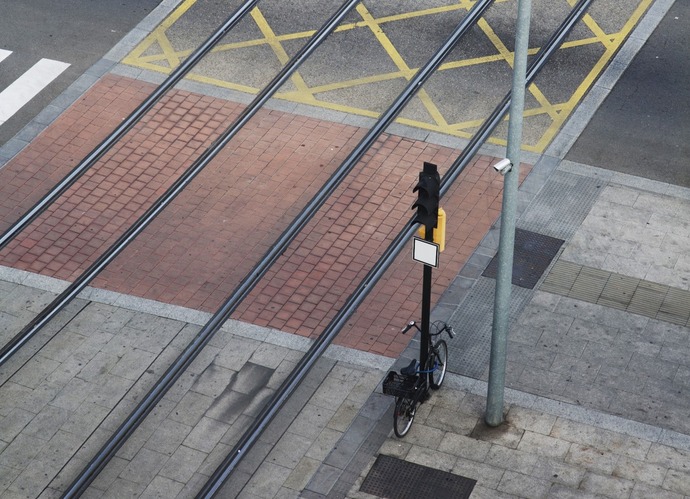
Transport
Transportation directly affects our lives in a myriad of ways, both positively by connecting people, goods and services and enabling participation in activities, and negatively via impacts on the environment, traffic congestion and health and safety concerns. Transport was responsible for 18% of sectoral emissions in 2021 and the decarbonisation of transport is a significant task to be addressed in the energy transition.
The Transport Research Hub @ UCD (TREAH) brings together all transport researchers in UCD under one research umbrella to provide an identity for their research and engender greater collaborative output to address these challenges.
Academic leads
- (opens in a new window)Saptarshi Sen, UCD School of Civil Engineering
- (opens in a new window)Beatriz(opens in a new window) Martinez-Pastor, UCD School of Civil Engineering
Supported by the UCD Earth Institute Strategic Priority Support Mechanism 2022/23
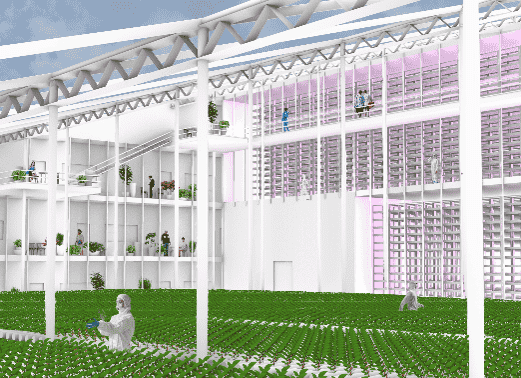
Data farms to urban farms
Data Farms to Urban Farms: Alternative Energy Flows Within Data Storage Infrastructure developed a knowledge platform to explore the holistic integration of data storage facilities in the Irish landscape. It facilitated collaboration between interdisciplinary thinkers at UCD from scientists, and horticulturalists to designers and industry experts and beyond to speculate on future productive industrial and cultural relationships between data storage and land use, as well as architectural and urban space.
Academic leads
- Mary Harty, formerly UCD School of Agriculture and Food Science
- Clare Lyster, UIC School of Architecture, Chicago
- Kevin McDonnell, UCD School of Agriculture and Food Science
- Niamh Harbourne, UCD School of Agriculture and Food Science
Supported by the UCD Earth Institute Strategic Priority Support Mechanism 2022/2023.
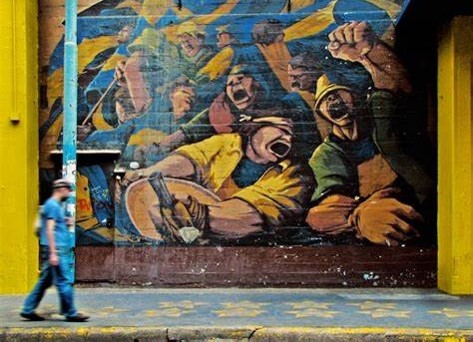
Just Transition
A zero-emission society is necessary for a sustainable future for all but this will require transformative changes in technology, society, human behaviour and institutional practices. A transition to a low carbon economy can be economically damaging as fossil fuel dependent regions face job loss and socio-economic deterioration.
To limit such negative impacts on people and places, a just transition based on social justice principles is needed, to ensure a Just Transition for all. Researchers, policy makers, labour unions, civil society, businesses, and others now recognise that while a Just Transition is essential, many challenges exist. Multidisciplinary, stakeholder engaged research can help inform Just Transition processes through discussions, dialogues and dissemination activities.
The purpose of the Just Transition Research Group (JTRG) is to increase knowledge and understanding of Just Transition topics by building a national and international research network, dissemination activities including a multi-stakeholder conference, and the creation of a website / database of Just Transition best practice, policy approaches and other materials.
(opens in a new window)Project website
Academic leads
- Aparajita Banerjee, formerly UCD College of Business
- Geertje Schuitema, UCD College of Business
- Julie Byrne, UCD College of Business
- Vikram Pakrashi, UCD School of Mechanical and Materials Engineering
- Anton van Beek, UCD School of Mechanical and Materials Engineering
- Nessa Winston, UCD School of Social Policy, Social Work and Social Justice
- Donna Marshall, UCD College of Business
- Hakan Karaosman, Cardiff University
Supported by the UCD Earth Institute Strategic Priority Support Mechanism 2022/23
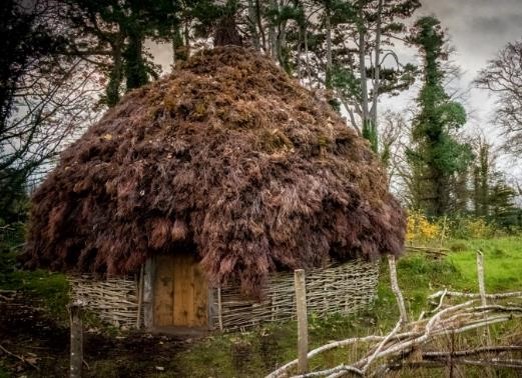
Cultural Landscapes and Social Spaces
From the prehistoric period to today, large numbers of people around the world make their houses from locally sourced, organic materials. These structures represent complex relationships between people (culture; society; knowledges), landscapes (places; ecologies), and materials (properties; sustainability), offering unique opportunities to consider interdependencies and intersubjectivities. Also, as intersections between local environment and the people that live and lived within them, these houses are important indicators of external pressures (i.e., climate change, mass migrations, pandemics, war).
The core objective of ClaSS is to bring together networks of researchers from inside and outside UCD with already established research collaborators from Archaeological Open-Air Museums (AOM) in Ireland, Britain, and continental Europe. The initiative aims to develop specific research strands and questions using ‘the House’ as a focal point to consider wider themes, including material/architectural sustainability, human health and well-being, causes and impacts of change.
Academic leads
- Brendan O'Neill, UCD School of Archaeology
- Anita Radini, UCD School of Archaeology
- Samantha Martin, UCD School of Architecture, Planning and Environmental Policy
Supported by the UCD Earth Institute Strategic Priority Support Mechanism 2022/2023.
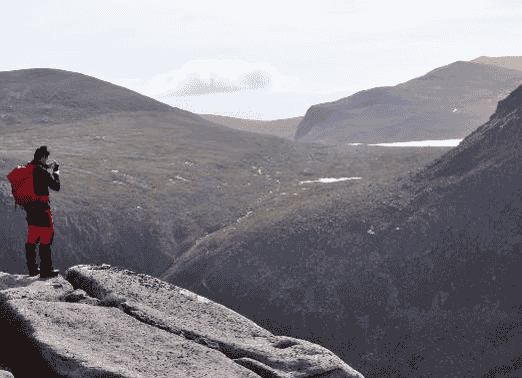
Mountains
Mountains are a key, but often overlooked, landscape type in Ireland, Europe and globally. These landscapes sustain rich, complex, ecosystems and forms of human activity and provide deep-time records of the same. Mountains are essential to global sustainability as an important source of biodiversity, freshwater, energy, food, and cultural values. The UCD Mountain Research Group works to highlight the importance of mountain landscapes and the value of interdisciplinary study of mountains to many of the goals of the Earth Institute.
The group has established networks of researchers and relevant agencies within and outside of UCD and supports the development of grant applications and capacity building within UCD. MRG raises broader awareness within and beyond UCD of dynamism of mountain landscapes, especially in the context of the climate crisis and their role in the Sustainable Development Goals. The project also contributes to development of policy in relation to mountain landscapes.
Academic leads
- Graeme Warren, UCD School of Archaeology
- Sam Kelley, UCD School of Earth Sciences
- Christine Bonnin, UCD School of Geography
Supported by the UCD Earth Institute Strategic Priority Support Mechanism 2021/2022.
Sustainable wellbeing
Sustainable wellbeing: humans, environment, and liveability (SWHEL) is an interdisciplinary network on sustainable wellbeing within UCD to facilitate collaboration and build capacity and community on the topic. The network has established links with academics and other stakeholders at local, national and international levels.
Academic leads
- (opens in a new window)Nessa Winston, UCD School of Social Policy, Social Work and Social Justice
- Karen Keaveney, UCD School of Agriculture and Food Science
- Finbarr Brereton, UCD School of Architecture, Planning & Environmental Policy
- Orla Kelly, UCD School of Social Policy, Social Work and Social Justice
- Conor Buggy, UCD School of Public Health, Physiotherapy & Sports Science
Supported by the UCD Earth Institute Strategic Priority Support Mechanism 2021/22
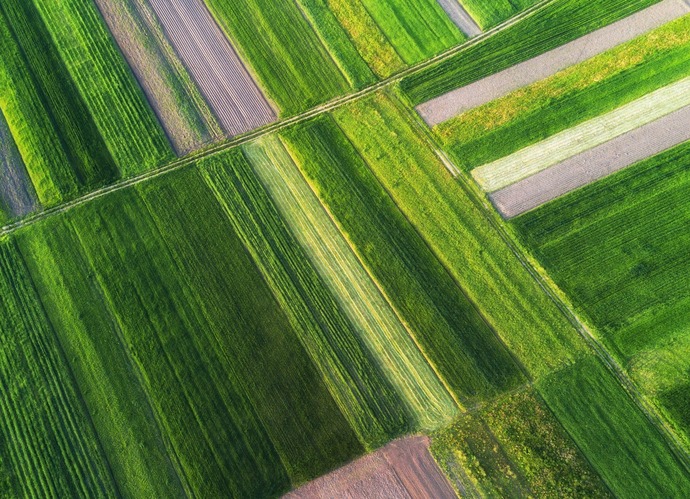
Biostimulants and biopesticides
The EU Farm to Fork strategy and Biodiversity Strategy 2030 seek to reduce pesticide and fertiliser use. Currently research at UCD is developing biostimulants and biopesticides while assessing the efficiency, environmental impacts and costs compared to conventional pesticides and fertilisers. Stakeholder perceptions of these biobased products are underexplored in Ireland and limited knowledge exists for Europe, particularly for public attitudes. This project mapped and engaged with stakeholders via workshops and surveys with outputs including an infographic, paper and policy document.
Academic leads
- (opens in a new window)Angela Feechan, UCD School of Agriculture & Food Science
- Aparajita Banerjee, UCD College of Business
- Geertje Schuitema, UCD College of Business
- Rainer Melzer, UCD School of Biology and Environmental Science
- Saoirse Tracy, UCD School of Agriculture & Food Science
- Kevin McDonnell, UCD School of Biosystems and Food Engineering
- Fiona Doohan, UCD School of Biology & Environmental Science
- Grace Cott, UCD School of Biology & Environmental Science
- Tomás Russell, UCD School of Agriculture & Food Science
- Carl Ng, UCD School of Biology and Environmental Science
Supported by the UCD Earth Institute Strategic Priority Support Mechanism 2021/2022
Community SDG Dashboard
Community SDG Dashboard was an academic-community partnership between the UCD Earth Institute researchers and the Dundrum 2030 community group in Dublin to foster social engagement for systematically monitoring the implementation of the UN Sustainable Development Goals at the local level.
Ecological networks
Network systems provide humans with essential services but can crash dramatically, a case in point being the financial collapse in 2008. Can these crises be predicted before it is too late? The answer is yes, and the key tool is network theory. Reconstructing ecological networks to predict systemic crisis (Re-Econet) is a UCD-based multidisciplinary collaboration between theoretical ecologists, physicists, geomorphologists, and biologists who use network science to discover the processes that control the stability and resilience of ecosystems.
Academic lead
- Tancredi Caruso, UCD School of Biology and Environmental Science
Supported by the UCD Earth Institute Strategic Priority Support Mechanism 2020/2021.
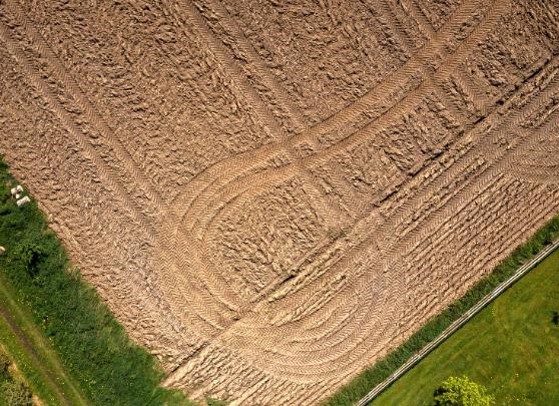
Crop diversification
By identifying and sharing a harmonised dataset across countries, the DIVERSICROP EU Cost Action consolidates knowledge relating to their socioeconomic, socio-political and geographical challenges and opportunities. DIVERSICROP will learn from the deep history of these crops in Europe as well as current farming, nutrition and policy data to understand their underutilisation and inform the future.
- (opens in a new window)Diversicrop project website
- (opens in a new window)Ancient food wisdom for modern food security – The Irish Times
DIVERSICROP was originally supported through the UCD Earth Institute Strategic Priority Support Mechanism in 2019/2020 and has since been awarded funding through EU COST and an IRC COALESCE award.
Academic leads
- Meriel McClatchie, UCD School of Archaeology
- Sonia Negrao, UCD School of Biology and Environmental Science
Irish Towns
The UCD Centre for Irish Towns brings together researchers and stakeholders from across the island of Ireland to support the revitalisation of Irish towns. Irish towns are home to approximately one-third of the population and play a critical role in the cultural, social and economic life of the nation.
But towns face multiple challenges such as long-term vacancy and a lack of investment in physical and social fabric, all exacerbated by a lack of data and knowledge, joined-up thinking, and a coherent, evidence based approach in terms of governance, policy and funding.
These challenges negatively impact on social cohesion, urban resilience, and the well-being of current and future generations. Irish towns are ideally placed to help accommodate predicted population growth and facilitate sustainable communities. Towns also have a key role in the just transition to a post-pandemic and low carbon society.
Academic leads
- Philip Crowe, UCD Schools of Architecture, Planning and Environmental Policy and Civil Engineering
- Orla Murphy, UCD School of Architecture, Planning and Environmental Policy
The Centre for Irish Towns was supported by the UCD Earth Institute Strategic Priority Support Mechanism in 2019/2020 and was subsequently established as a UCD centre for research and training in 2021.
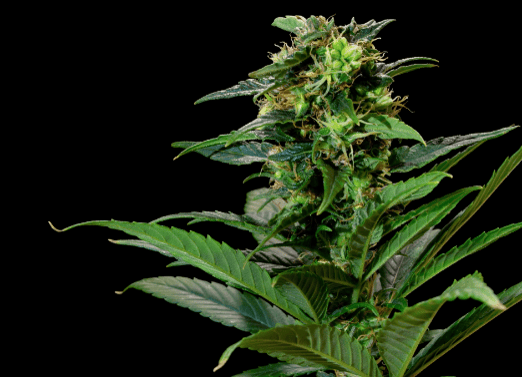
Hemp
Cannabis sativa (hemp and marijuana) is an extremely versatile plant that has the potential to increase the sustainability and resource efficiency of modern agriculture. At the same time, it is a high-value yet controversial crop used to produce medicinal compounds.
HempHub is a knowledge hub focused on hemp research at UCD and other Irish institutions. A cross-disciplinary group of researchers, HempHub focus on investigating the environmental, genetic, pharmacological and engineering properties of hemp as well as the societal implications of its use.
- (opens in a new window)Project website
- (opens in a new window)The Cream of the Crop: Biology, Breeding and Applications of Cannabis sativa
Academic leads
- Rainer Melzer, UCD School of Biology and Environmental Science
- Antoinette Perry, UCD School of Biology and Environmental Science
Supported by the UCD Earth Institute Strategic Priority Support Mechanism 2019/2020.
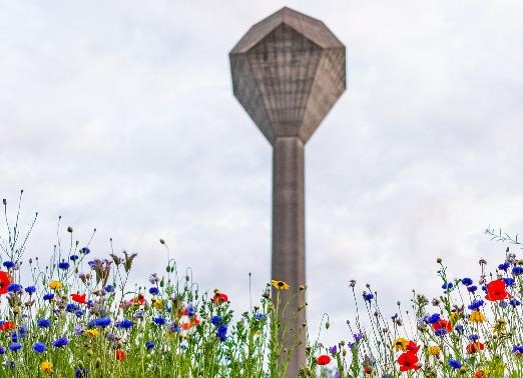
Ecobroker
ECOBROKER worked to create a platform to create a systematic and accessible means for practitioners and researchers to exchange knowledge on priority questions of societal importance which will into best practices, research and teaching. By improving communication between stakeholders, the platform supported development of interdisciplinary activity and strengthen and create connections which help maximise impact of the research outputs and tackle complex challenges and initiatives such the Sustainable Development Goals.
Academic lead
- Tamara Hochstrasser, UCD School of Biology and Environmental Science
Supported by the UCD Earth Institute Strategic Priority Support Mechanism 2018-2019.
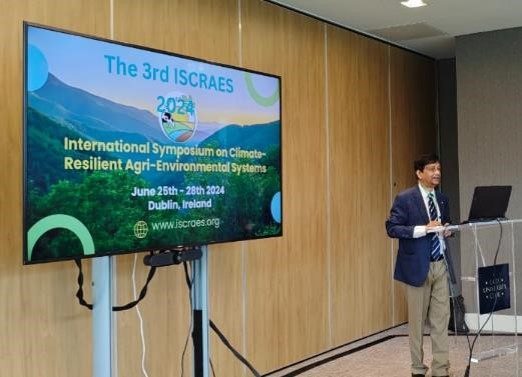
Climate resilience
Agricultural systems are large contributors to greenhouse gas production and environmental pollution. An integrated approach is required for mitigation and the creation of climate-smart and environment-friendly sustainable agricultural systems. The Climate-Resilient Agri-Environmental Systems (CRAES) group was formed to provide the critical mass required to address the challenges by harnessing UCD’s multidisciplinary expertise through integration from broad spectrum of disciplines and engaging with national and international collaborators, stakeholders and industry to build partnerships.
CRAES aims to improve understanding of agricultural systems, their role in climate change and environmental degradation; and the influence of management practices and climate change on the systems themselves and the wider environment to make productive and profitable ones but also sustainable at local and global scales.
CRAES is the coordinator of the (opens in a new window)International Symposium on Climate-Resilient Agri-Environmental Systems, held every two years in Dublin since 2020.
Academic lead
- Ibrahim Khalil, UCD
- Bruce Osborne, UCD School of Agriculture and Food Science
Supported by the UCD Earth Institute Strategic Priority Support Mechanism 2018/2019.
